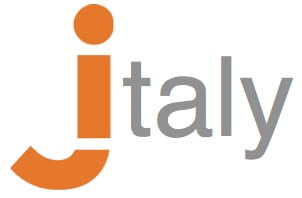The French Revolution abolished discrimination based on religion or origin; the 1789 Declaration of the Rights of Man and of the Citizen guaranteed freedom of religion and free exercise of worship, provided that it did not interfere with public order. The conquests of Napoleon Bonaparte spread the modern ideas of revolutionary France. Under the influence of Napoleon’s liberal religious policies, the Jews of Italy, like those of France, were emancipated. The absolute power of the popes was broken – in the fight against the French, they relented their anti-Jewish edicts.
Napoleon’s personal attitude towards the Jews was ambiguous. Some historians point to his conflicting statements, both in support of and against Jews. Yet his liberation of the Jewish communities in Italy (notably in Ancona and the Papal States) and his insistence on the assimilation of Jews as equals in both French and Italian societies, are beyond dispute.
Bank note, Repubblica Romana, 1798
Italy sent four deputies to the Sanhedrin, convened by Napoleon in Paris in 1807: Abraham Vita da Cologna; Isaac Benzion Segre, rabbi of Vercelli; Graziadio Neppi, physician and rabbi of Cento; and Jacob Israel Karmi, rabbi of Reggio.
In 1796, Napoleon commanded the Italian campaign, attempting to conquer the Kingdom of Sardinia and drive back the Austrians from Italy. The clashes began against the Piedmontese army and in two weeks Vittorio Amedeo III of Savoy was forced to sign the armistice. In May, Napoleon entered Milan and was greeted as a liberator. The Napoleonic army defeated the Austrian counterattacks and continued its advance, conquering the Veneto region in 1797. He then liberated Ancona, opened up the ghetto and, as an affront to the Pope, proclaimed there a republic, with Ancona as its capital. For the Jews of Ancona, the new acquired liberties were soon revoked as the Papal State was restored in 1800. In 1808, Napoleon conquered the Kingdom of Naples and entrusted it to his brother, Gioacchino Murat. Napoleon’s sisters, Elisa and Pauline, ruled over the principalities of Massa Carrara and Guastalla. Finally, in 1809, Bonaparte occupied Rome, after fighting with the Pope, who had excommunicated him and financed military campaigns against him.
Sadly the liberties acquired by the Jews under Napoleon were short-lived; they disappeared with his downfall. Pope Pius VII reinstalled the Inquisition, deprived the Jews of their liberty and confined them again in ghettos. In many of the states into which Italy was then divided, popular resentment against the Jews grew as they were seen as allies of the French occupiers.
In the year 1829, following an edict of the Emperor Francis I, the first Italian rabbinical college opened in Padua, where Lelio della Torre and Samuel David Luzzatto taught. Luzzatto was a towering figure of Italian Judaism and a man of great intellect; he wrote in Hebrew on topics ranging from philosophy, history, literature and criticism to grammar. Many distinguished rabbis were formed at the rabbinical college of Padua and the work of that college was closely followed throughout Italy and Europe. At the same time, Elijah Benamozegh, a man of great knowledge and a scholar of European stature, distinguished himself at the rabbinical school in Livorno.



